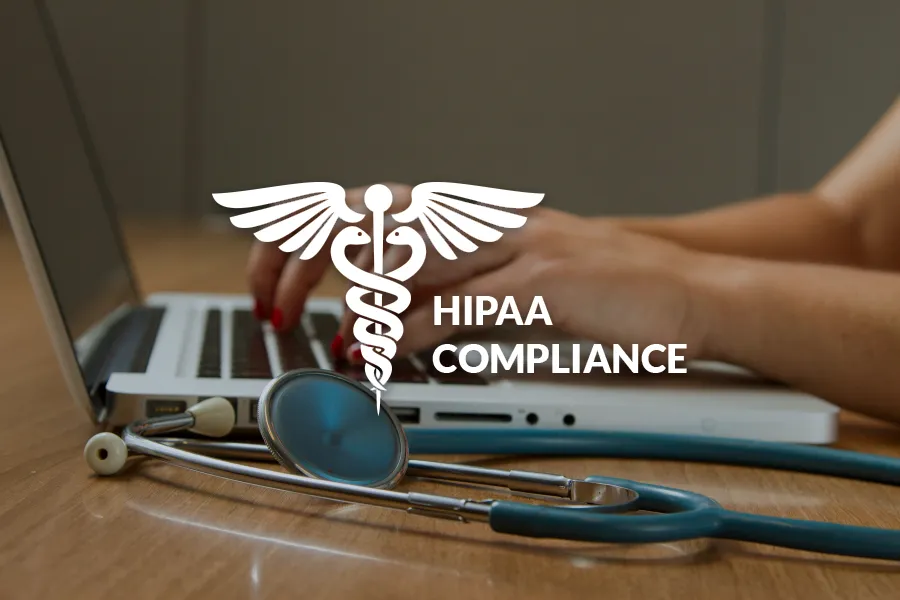With American manufacturing reshoring, quality control is no longer just an SPC chart; it’s a critical component of operational success. With the rise of automation and smart technologies, manufacturers are embracing innovative software solutions that not only enhance quality assurance but also streamline compliance processes and reduce costs. In this article, we explore the top seven software solutions that are revolutionizing quality control in manufacturing. From AI-driven analytics that detect defects in real-time to comprehensive management systems designed for seamless integration, these tools are changing the way products are tested and validated. Join us as we delve into each solution and discover how they empower manufacturers to elevate their quality standards, boost productivity, and ultimately foster customer satisfaction in an increasingly competitive market. Unlock the future of manufacturing quality control today!
The Importance of Quality Control Software
In manufacturing, quality control and compliance reporting are pivotal elements that determines the reputation and repeatability of production processes. Traditionally, quality control incorporates manual practices, involving extensive human inspection and error-prone paper or EXCEL spreadsheets. However, as manufacturing equipment has evolved, CSV file outputs or real-time API’s provide several upgrades to these traditional methods. Enter quality control software—an innovative solution designed to automate, streamline, and enhance the quality assurance process. This technological advancement streamlines practices and reporting to maintain high standards, reduce scrap or rework, and ensure customer satisfaction.
Quality control software systems offer a multiple benefits that extend beyond data recording. They provide real-time data capture, enabling more rapid detection and correction of defects. This proactive approach significantly reduces the incidence of faulty products reaching the market, thereby safeguarding brand reputation and customer trust. Additionally, these systems facilitate comprehensive documentation and reporting, which are critical for regulatory compliance and continuous improvement initiatives. By integrating quality control software, manufacturers can achieve higher levels of precision, consistency, and efficiency in their operations.
Moreover, quality control software plays a crucial role in fostering a culture of continuous improvement within manufacturing organizations. By analyzing data trends and generating insightful reports, these systems help identify recurring issues and areas for enhancement. This data-driven approach empowers decision-makers to implement targeted improvements, optimize processes, and ultimately drive operational excellence. In an increasingly competitive market, the ability to consistently deliver high-quality products is a key differentiator, and quality control software provides the tools necessary to achieve this goal.
Key Features to Look for in Quality Control Software
When selecting quality control software, consider several features that can impact its effectiveness and suitability for your specific needs. One of the key features to look for is real-time data capture and analysis. The ability to monitor production processes in real-time and immediately identify defects or deviations from quality standards is essential information to share with operators and production managers. This feature not only helps prevent the production of faulty products but also enables quick corrective actions, minimizing downtime and waste.
Another valuable feature is comprehensive reporting and documentation capabilities. Quality control software should provide detailed reports that cover various aspects of the production process, including defect rates, inspection results, and compliance metrics. These reports are essential for regulatory audits, continuous improvement initiatives, and management reviews. Furthermore, the software should facilitate easy data retrieval and analysis, allowing users to generate custom reports and gain deeper insights into quality trends and areas for improvement.
Integration with existing systems is also a key consideration. Preferably, quality control software should provide API’s to integrate with other manufacturing systems such as ERP, MES, and PLM. API integration, instead of CSV file exports, ensure a cohesive flow of information across the organization, enhancing overall efficiency and decision-making. Additionally, the software should be user-friendly, with an intuitive interface that simplifies training and adoption. A robust support and maintenance program is also essential to ensure the software remains up-to-date and continues to meet the evolving needs of the manufacturing environment.
Overview of the Top 7 Software Solutions
As the demand for advanced quality control solutions grows, several software platforms have emerged as industry leaders, each offering unique features and benefits. In this section, we provide an overview of the top seven software solutions that are revolutionizing quality control in manufacturing. These solutions have been selected based on their innovation, effectiveness, and user feedback, making them the top choices for manufacturers looking to enhance their quality assurance processes.
- SPC for Excel: This software brings the power of Statistical Process Control (SPC) to the widely-used Excel platform, making it accessible and easy to use for many manufacturers. It enables real-time data analysis and visualization, helping identify quality issues promptly.
- InfinityQS: InfinityQS is a comprehensive quality management system (QMS) that offers real-time quality monitoring, advanced analytics, and robust reporting capabilities. It is designed to help manufacturers achieve compliance, reduce variability, and drive continuous improvement.
- Minitab: Known for its powerful statistical analysis tools, Minitab helps manufacturers analyze quality data, identify trends, and implement data-driven improvements. It offers a wide range of statistical tools and is highly regarded for its ease of use and reliability.
- QMS Quality Management Software by MasterControl: This software provides an integrated approach to quality management, combining document control, training management, and corrective action/preventive action (CAPA) in one platform. It is designed to help manufacturers maintain compliance and improve overall quality.
- ETQ Reliance: ETQ Reliance is a flexible and scalable QMS that offers a wide range of modules, including audit management, document control, and risk management. It is designed to help manufacturers achieve operational excellence and regulatory compliance.
- Qualio: Qualio is a cloud-based QMS that is particularly well-suited for small to mid-sized manufacturers. It offers an intuitive interface, robust document control, and comprehensive compliance management features.
- IQMS Manufacturing ERP: This software combines ERP and QMS functionalities to provide a holistic approach to manufacturing quality control. It offers real-time quality monitoring, advanced analytics, and seamless integration with other manufacturing systems.
Each of these software solutions offers unique features and benefits, making them suitable for different types of manufacturers. In the following sections, we will delve deeper into each solution, exploring their key features, benefits, and how they can help manufacturers enhance their quality control processes.
In-Depth Review of Each Software Solution
SPC for Excel
SPC for Excel is an innovative tool that leverages the familiarity and flexibility of Excel to implement Statistical Process Control (SPC). This software is particularly advantageous for manufacturers who are already comfortable using Excel and want to enhance their quality control processes without investing in a completely new system. SPC for Excel provides real-time data analysis and visualization, helping identify quality issues promptly and enabling quick corrective actions. Its user-friendly interface and comprehensive feature set make it a powerful yet accessible tool for improving quality assurance.
One of the standout features of SPC for Excel is its ability to generate a wide range of control charts, histograms, and Pareto charts, which are essential for monitoring process stability and identifying areas for improvement. The software also offers robust data analysis tools, including capability analysis and hypothesis testing, which help manufacturers make informed decisions based on statistical evidence. Additionally, SPC for Excel supports real-time data entry and analysis, enabling immediate detection of deviations from quality standards and reducing the risk of producing defective products.
Another key benefit of SPC for Excel is its ease of integration with existing systems and processes. Since it operates within the familiar Excel environment, users can quickly adopt the software and start leveraging its capabilities without extensive training. The software also supports seamless data import and export, allowing manufacturers to integrate it with other quality control systems and databases. Overall, SPC for Excel is a versatile and effective tool for enhancing quality control processes, making it an excellent choice for manufacturers of all sizes.
InfinityQS
InfinityQS is a comprehensive quality management system (QMS) that offers real-time quality monitoring, advanced analytics, and robust reporting capabilities. Designed to help manufacturers achieve compliance, reduce variability, and drive continuous improvement, InfinityQS is a powerful tool for enhancing quality assurance processes. The software’s real-time data capture and analysis capabilities enable immediate detection of quality issues, allowing manufacturers to take corrective actions promptly and minimize the production of defective products.
One of the key features of InfinityQS is its advanced analytics capabilities, which provide deep insights into quality data and help identify trends and patterns. The software offers a wide range of statistical tools, including control charts, capability analysis, and Pareto analysis, which are essential for monitoring process stability and identifying areas for improvement. InfinityQS also supports real-time data visualization, enabling users to monitor quality metrics and performance indicators at a glance. This proactive approach helps manufacturers maintain high-quality standards and achieve continuous improvement.
InfinityQS also offers robust reporting capabilities, which are essential for regulatory compliance and management reviews. The software provides detailed reports that cover various aspects of the production process, including defect rates, inspection results, and compliance metrics. These reports are customizable, allowing users to generate reports that meet their specific needs and requirements. Additionally, InfinityQS supports seamless integration with other manufacturing systems, including ERP, MES, and PLM, ensuring a cohesive flow of information across the organization. This integration enhances overall efficiency and decision-making, making InfinityQS an excellent choice for manufacturers looking to enhance their quality control processes.
Minitab
Minitab is a renowned software solution known for its powerful statistical analysis tools, which help manufacturers analyze quality data, identify trends, and implement data-driven improvements. The software offers a wide range of statistical tools, including control charts, regression analysis, and hypothesis testing, making it a valuable tool for quality assurance and continuous improvement initiatives. Minitab is highly regarded for its ease of use and reliability, making it an excellent choice for manufacturers looking to enhance their quality control processes.
One of the standout features of Minitab is its comprehensive data analysis capabilities, which provide deep insights into quality data and help identify trends and patterns. The software offers a wide range of statistical tools, including control charts, capability analysis, and Pareto analysis, which are essential for monitoring process stability and identifying areas for improvement. Minitab also supports real-time data visualization, enabling users to monitor quality metrics and performance indicators at a glance. This proactive approach helps manufacturers maintain high-quality standards and achieve continuous improvement.
Minitab also offers robust reporting capabilities, which are essential for regulatory compliance and management reviews. The software provides detailed reports that cover various aspects of the production process, including defect rates, inspection results, and compliance metrics. These reports are customizable, allowing users to generate reports that meet their specific needs and requirements. Additionally, Minitab supports seamless integration with other manufacturing systems, ensuring a cohesive flow of information across the organization. This integration enhances overall efficiency and decision-making, making Minitab an excellent choice for manufacturers looking to enhance their quality control processes.
QMS Quality Management Software by MasterControl
QMS Quality Management Software by MasterControl is an integrated approach to quality management, combining document control, training management, and corrective action/preventive action (CAPA) in one platform. Designed to help manufacturers maintain compliance and improve overall quality, MasterControl’s QMS is a powerful tool for enhancing quality assurance processes. The software’s comprehensive feature set and user-friendly interface make it an excellent choice for manufacturers looking to enhance their quality control processes.
One of the key features of MasterControl’s QMS is its robust document control capabilities, which ensure that all quality-related documents are properly managed and maintained. The software supports version control, document approval workflows, and secure access, ensuring that all documents are up-to-date and compliant with regulatory requirements. MasterControl’s QMS also offers comprehensive training management capabilities, which help ensure that all employees are properly trained and qualified for their roles. This feature is essential for maintaining high-quality standards and ensuring compliance with regulatory requirements.
MasterControl’s QMS also offers robust CAPA capabilities, which help identify and address quality issues promptly. The software supports the entire CAPA process, from identifying the root cause of quality issues to implementing corrective actions and verifying their effectiveness. This proactive approach helps manufacturers maintain high-quality standards and achieve continuous improvement. Additionally, MasterControl’s QMS supports seamless integration with other manufacturing systems, ensuring a cohesive flow of information across the organization. This integration enhances overall efficiency and decision-making, making MasterControl’s QMS an excellent choice for manufacturers looking to enhance their quality control processes.
ETQ Reliance
ETQ Reliance is a flexible and scalable quality management system (QMS) that offers a wide range of modules, including audit management, document control, and risk management. Designed to help manufacturers achieve operational excellence and regulatory compliance, ETQ Reliance is a powerful tool for enhancing quality assurance processes. The software’s modular architecture and user-friendly interface make it an excellent choice for manufacturers looking to enhance their quality control processes.
One of the key features of ETQ Reliance is its robust audit management capabilities, which help ensure that all quality-related processes are properly managed and maintained. The software supports the entire audit process, from planning and scheduling to execution and reporting. ETQ Reliance also offers comprehensive document control capabilities, ensuring that all quality-related documents are properly managed and maintained. The software supports version control, document approval workflows, and secure access, ensuring that all documents are up-to-date and compliant with regulatory requirements.
ETQ Reliance also offers robust risk management capabilities, which help identify and address potential quality issues before they become problems. The software supports risk assessment, mitigation planning, and monitoring, helping manufacturers maintain high-quality standards and achieve continuous improvement. Additionally, ETQ Reliance supports seamless integration with other manufacturing systems, ensuring a cohesive flow of information across the organization. This integration enhances overall efficiency and decision-making, making ETQ Reliance an excellent choice for manufacturers looking to enhance their quality control processes.
Qualio
Qualio is a cloud-based quality management system (QMS) that is particularly well-suited for small to mid-sized manufacturers. The software offers an intuitive interface, robust document control, and comprehensive compliance management features, making it an excellent choice for manufacturers looking to enhance their quality control processes. Qualio’s cloud-based architecture ensures that the software is always up-to-date and accessible from anywhere, making it an ideal solution for manufacturers with distributed teams or remote operations.
One of the key features of Qualio is its robust document control capabilities, which ensure that all quality-related documents are properly managed and maintained. The software supports version control, document approval workflows, and secure access, ensuring that all documents are up-to-date and compliant with regulatory requirements. Qualio also offers comprehensive compliance management capabilities, helping manufacturers maintain compliance with various regulatory standards, including ISO, FDA, and GMP. This feature is essential for maintaining high-quality standards and ensuring compliance with regulatory requirements.
Qualio also offers robust training management capabilities, which help ensure that all employees are properly trained and qualified for their roles. The software supports the entire training process, from planning and scheduling to execution and tracking. This proactive approach helps manufacturers maintain high-quality standards and achieve continuous improvement. Additionally, Qualio supports seamless integration with other manufacturing systems, ensuring a cohesive flow of information across the organization. This integration enhances overall efficiency and decision-making, making Qualio an excellent choice for manufacturers looking to enhance their quality control processes.
IQMS Manufacturing ERP
IQMS Manufacturing ERP is a comprehensive software solution that combines enterprise resource planning (ERP) and quality management system (QMS) functionalities to provide a holistic approach to manufacturing quality control. The software offers real-time quality monitoring, advanced analytics, and seamless integration with other manufacturing systems, making it an excellent choice for manufacturers looking to enhance their quality control processes. IQMS Manufacturing ERP is designed to help manufacturers achieve operational excellence, reduce variability, and drive continuous improvement.
One of the key features of IQMS Manufacturing ERP is its real-time quality monitoring capabilities, which enable immediate detection of quality issues and prompt corrective actions. The software supports real-time data capture and analysis, allowing manufacturers to monitor quality metrics and performance indicators at a glance. This proactive approach helps manufacturers maintain high-quality standards and achieve continuous improvement. IQMS Manufacturing ERP also offers advanced analytics capabilities, providing deep insights into quality data and helping identify trends and patterns. The software offers a wide range of statistical tools, including control charts, capability analysis, and Pareto analysis, which are essential for monitoring process stability and identifying areas for improvement.
IQMS Manufacturing ERP also offers robust reporting capabilities, which are essential for regulatory compliance and management reviews. The software provides detailed reports that cover various aspects of the production process, including defect rates, inspection results, and compliance metrics. These reports are customizable, allowing users to generate reports that meet their specific needs and requirements. Additionally, IQMS Manufacturing ERP supports seamless integration with other manufacturing systems, ensuring a cohesive flow of information across the organization. This integration enhances overall efficiency and decision-making, making IQMS Manufacturing ERP an excellent choice for manufacturers looking to enhance their quality control processes.
How These Solutions Improve Efficiency and Reduce Costs
The software solutions discussed above offer a wide range of features and benefits that can significantly improve efficiency and reduce costs in manufacturing operations. One of the primary ways these solutions enhance efficiency is by automating quality control processes, reducing the need for manual inspection and documentation. This automation not only saves time but also reduces the risk of human error, ensuring more accurate and reliable quality data. By streamlining quality control processes, manufacturers can achieve faster production cycles and reduce downtime, ultimately improving overall productivity.
Another key benefit of these software solutions is their ability to provide real-time data capture and analysis. This feature enables immediate detection of quality issues, allowing manufacturers to take corrective actions promptly and minimize the production of defective products. By addressing quality issues in real-time, manufacturers can reduce waste, lower rework costs, and improve overall product quality. Additionally, the real-time data provided by these software solutions helps manufacturers monitor process stability and identify areas for improvement, enabling continuous improvement initiatives that drive operational excellence.
The advanced analytics and reporting capabilities offered by these software solutions also play a crucial role in reducing costs and improving efficiency. By providing deep insights into quality data and generating detailed reports, these solutions help manufacturers identify trends, patterns, and recurring issues. This data-driven approach enables targeted improvements and process optimizations, reducing variability and enhancing overall efficiency. Furthermore, the comprehensive documentation and reporting capabilities provided by these software solutions are essential for regulatory compliance, helping manufacturers avoid costly fines and ensuring a smooth audit process.
Case Studies: Success Stories from Manufacturers
The impact of quality control software on manufacturing operations can be best understood through real-world case studies. In this section, we highlight success stories from manufacturers who have implemented these software solutions and achieved significant improvements in quality, efficiency, and cost savings.
Case Study 1: InfinityQS
A leading automotive parts manufacturer implemented InfinityQS to enhance their quality control processes and achieve compliance with stringent industry standards. Prior to implementing InfinityQS, the manufacturer relied on manual inspection and paper-based documentation, which were time-consuming and prone to errors. By adopting InfinityQS, the manufacturer was able to automate data capture and analysis, enabling real-time monitoring of quality metrics and immediate detection of defects. This proactive approach helped the manufacturer reduce defect rates by 30%, lower rework costs by 25%, and achieve compliance with industry standards. Additionally, the comprehensive reporting capabilities provided by InfinityQS helped the manufacturer streamline regulatory audits and maintain high-quality standards.
Case Study 2: Minitab
A pharmaceutical manufacturer implemented Minitab to enhance their quality control processes and achieve compliance with FDA regulations. Prior to implementing Minitab, the manufacturer faced challenges in analyzing quality data and identifying trends. By adopting Minitab, the manufacturer was able to leverage powerful statistical analysis tools to analyze quality data, identify trends, and implement data-driven improvements. This proactive approach helped the manufacturer reduce defect rates by 20%, lower rework costs by 15%, and achieve compliance with FDA regulations. Additionally, the comprehensive reporting capabilities provided by Minitab helped the manufacturer streamline regulatory audits and maintain high-quality standards.
Case Study 3: Qualio
A medical device manufacturer implemented Qualio to enhance their quality control processes and achieve compliance with ISO standards. Prior to implementing Qualio, the manufacturer relied on manual inspection and paper-based documentation, which were time-consuming and prone to errors. By adopting Qualio, the manufacturer was able to automate data capture and analysis, enabling real-time monitoring of quality metrics and immediate detection of defects. This proactive approach helped the manufacturer reduce defect rates by 25%, lower rework costs by 20%, and achieve compliance with ISO standards. Additionally, the comprehensive reporting capabilities provided by Qualio helped the manufacturer streamline regulatory audits and maintain high-quality standards.





